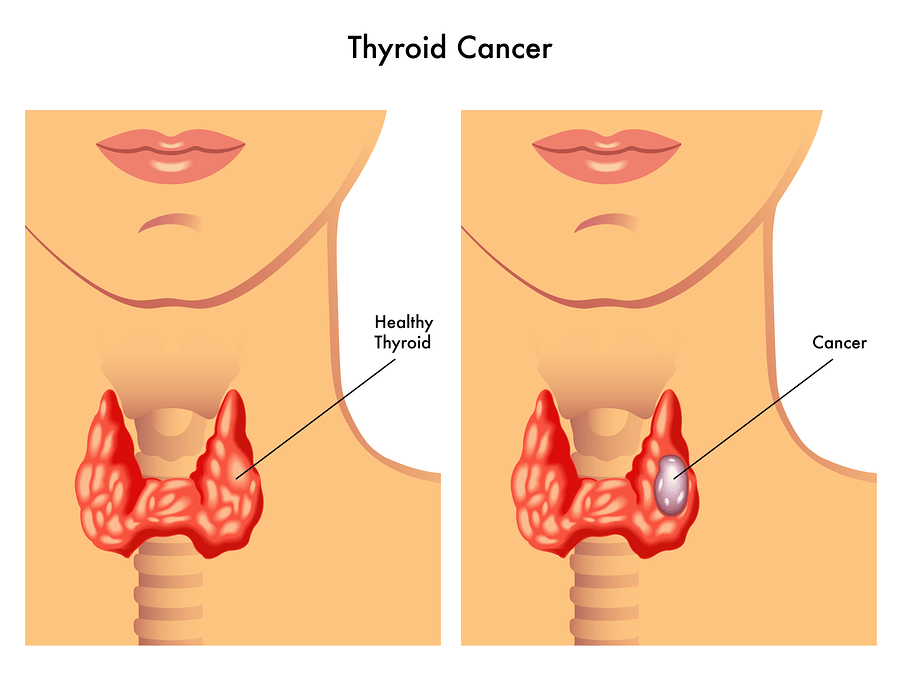Thyroid cancer is less common in children and adolescents when compared to adults. Thyroid cancer is most commonly diagnosed in teenage girls but can occur in boys too. It usually manifests with a nodule seen distinctly in the thyroid gland.

Compared to adults, childhood thyroid cancers have higher rates of metastases and recurrence. However, for the majority of children and adolescents, thyroid cancer is easily treatable and the outcome for children with thyroid cancers is usually excellent.
Thus, the goal of treatment is to get rid of the cancer with the fewest complications from treatment.
Surgery is the initial step in therapy in all cases followed by radioactive iodine even when thyroid cancer is more advanced.
There are different types of thyroid cancers, each one has different outcome, so your doctor will be the correct person to explain these in details.
Goitre in children
The term “goiter” simply refers to the abnormal enlargement of the thyroid gland. It is important to know that the presence of a goiter does not necessarily mean that the thyroid gland is malfunctioning.
A goitre can occur in a gland that is producing too much hormone (hyperthyroidism) or too little hormone (hypothyroidism) or the correct amount of hormone (euthyroidism).
What causes goitre?
Physiological enlargement of the gland with normal thyroid hormone levels can occur in puberty. In neonates failure of the enzymes required to process the iodine to make thyroid hormone can cause a neonatal goitre. In children, one of the most common causes of goitre formation worldwide is iodine deficiency.
However, due to food fortification with iodine, it is not commonly seen in developed countries, however, still, it exists. Hashimoto’s thyroiditis (autoimmune thyroiditis), Graves’ disease (Autoimmune hyperthyroidism) are the autoimmune causes of hypothyroidism and hyperthyroidism respectively causing a goitre.
Multinodular goitres often detected as a nodular feeling gland on physical examination also cause of goitre in children.
How is a goitre treated?
The treatment will depend upon the cause of the goitre. If the goitre was due to a deficiency of iodine, iodine supplementation will be given in preparations to take by mouth.
If the goitre is due to Hashimoto’s Thyroiditis, and the child is hypothyroid, thyroid hormone supplement is given as a daily pill. If the goitre is due to hyperthyroidism, the treatment will depend upon the cause of the hyperthyroidism.
Many goitres, such as the multinodular goitre, are associated with normal levels of thyroid hormone in the blood. These goitres usually do not require any specific treatment after the appropriate diagnosis is made. But regular thyroid hormone levels need to be monitored.